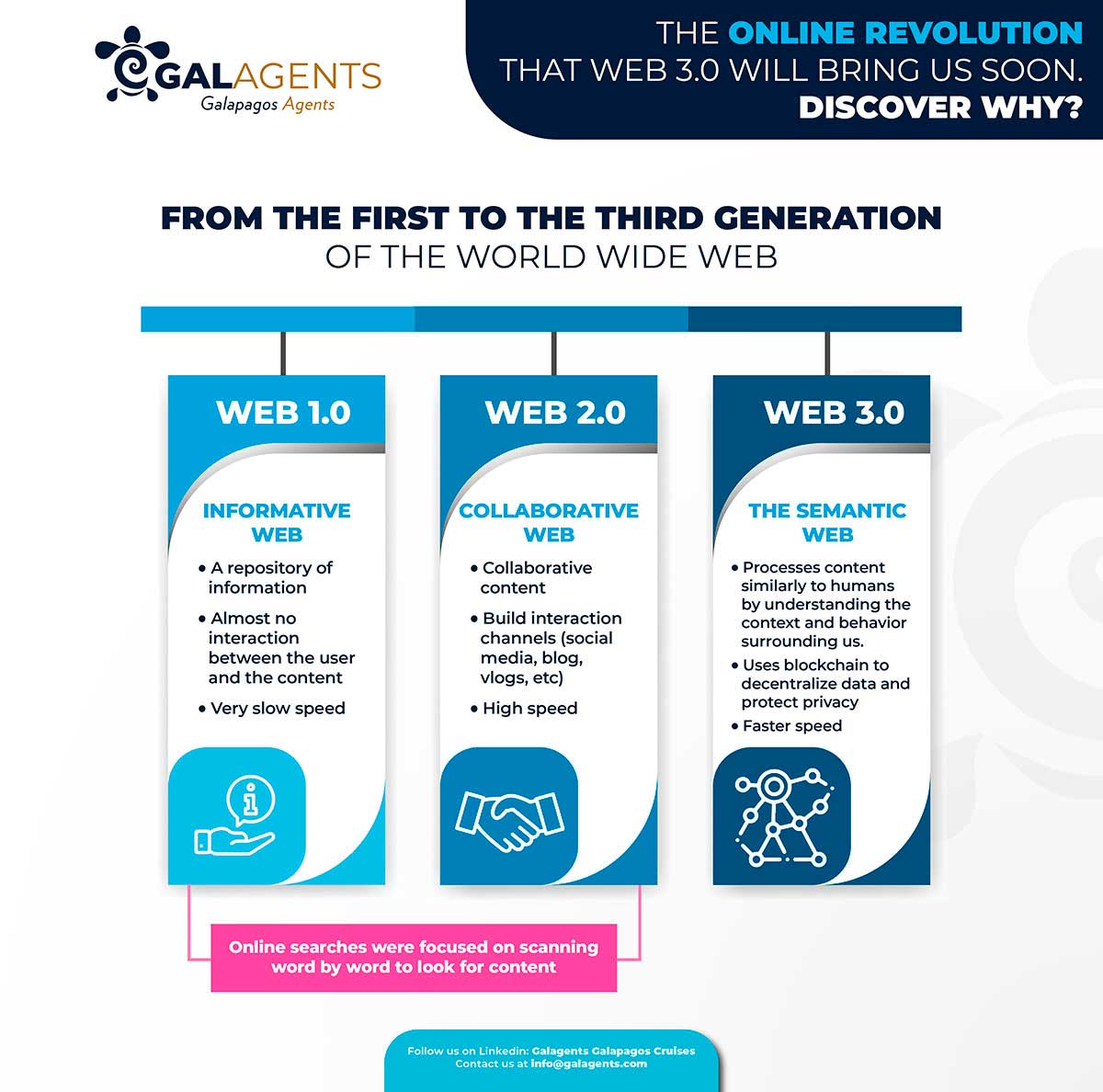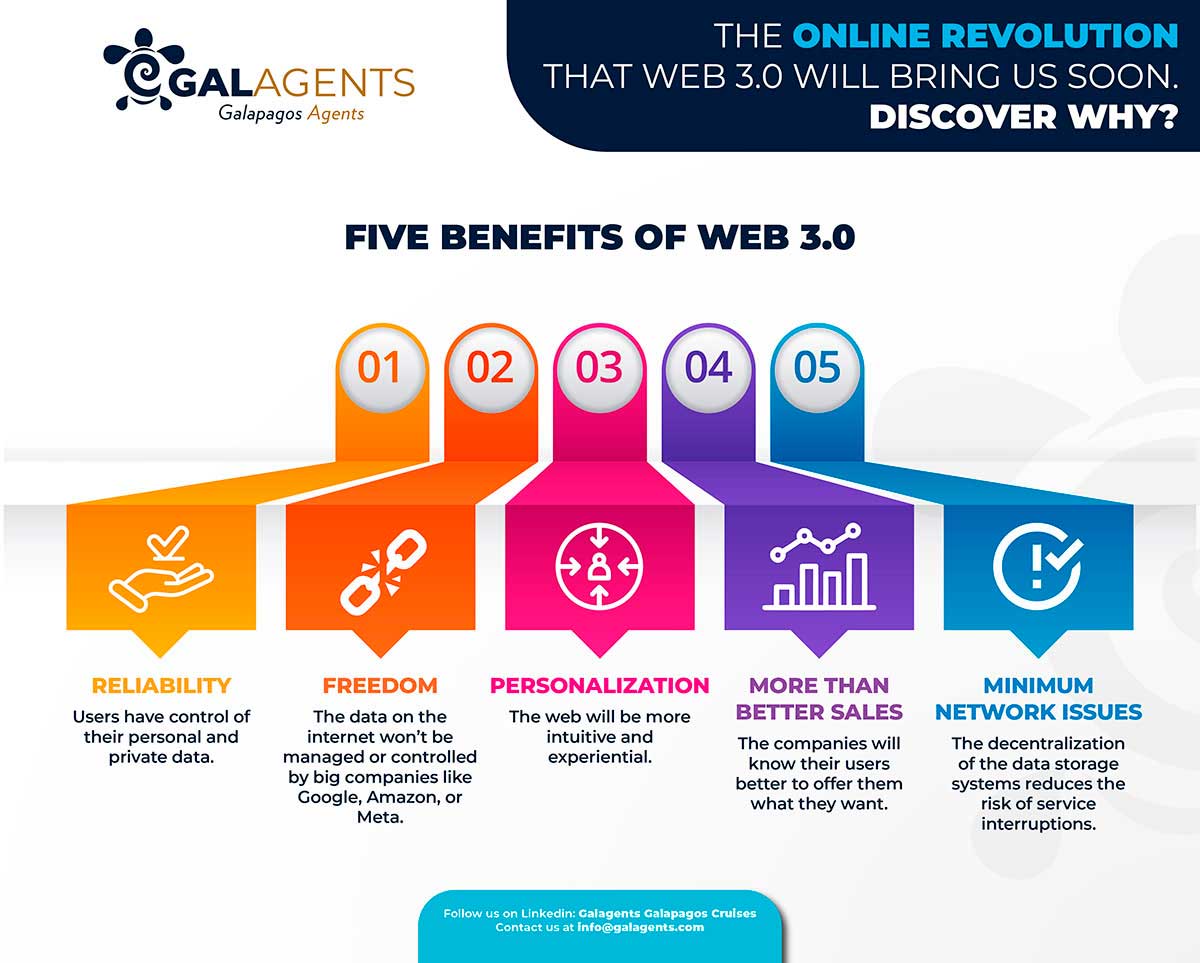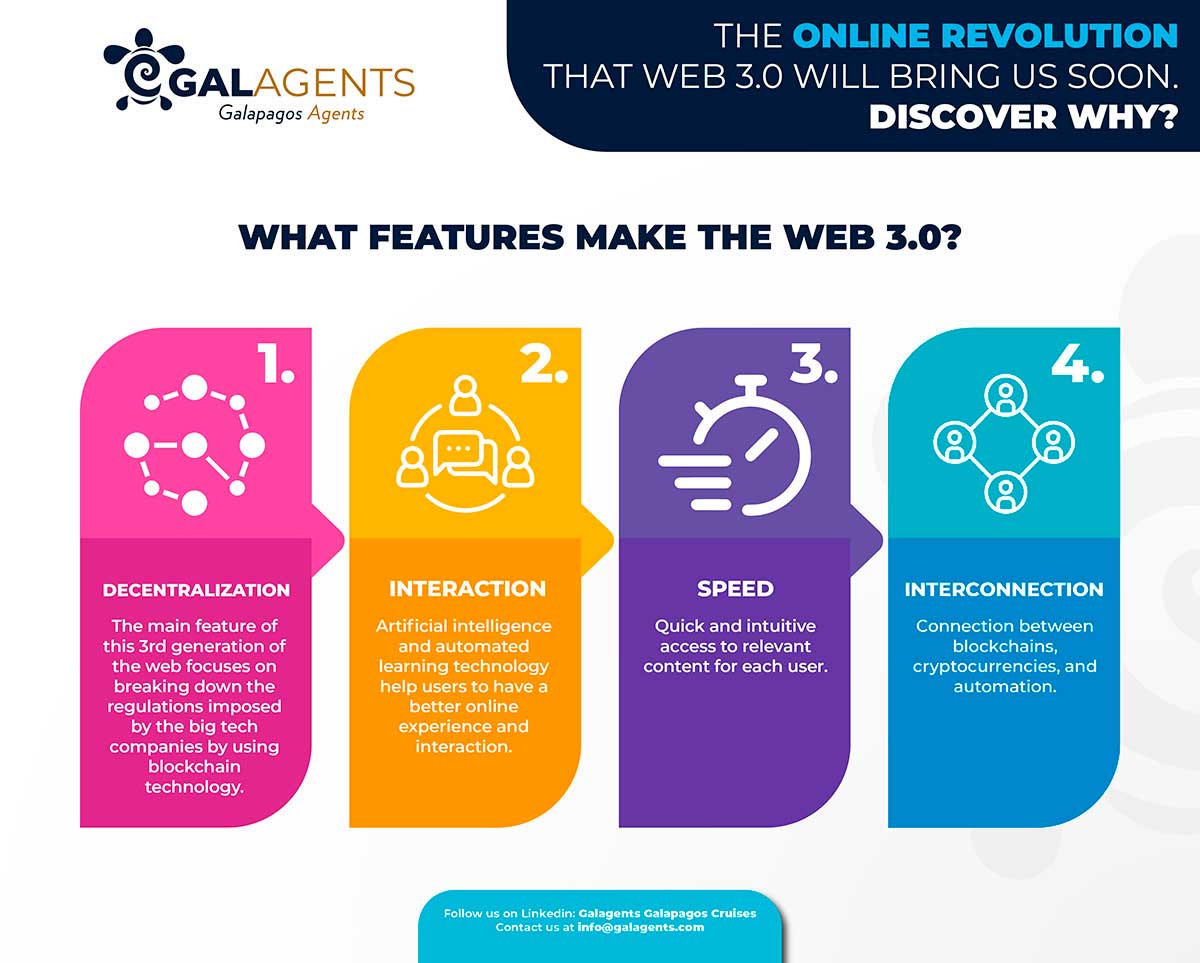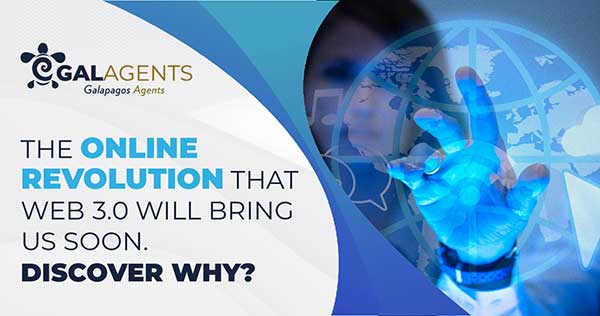Have you heard about the development of web 3.0? If not yet, it’s your time to understand what we’re close to experiencing or already experiencing.
Not so long ago, we were talking about being in the 2.0 online era, but, as we’re used to, as soon as the 2.0 landed in our lives, the 3.0 began its development. So, in this article, we’ll discuss what 3.0 is, its benefits, and its characteristics. Hopefully, you’ll understand what it is all about and how close we live.
From the first to the third generation of the world wide web
Web 3.0 is called by many the semantic web because it’ll processes content similarly to humans by understanding the context and behavior surrounding us. But, what the first and second generations offered us.
Web 1.0 was barely a repository of information the people access to read it, but with almost no interaction. That was the period of static sites with tons of information that took ages to upload and download.

Web 2.0, on the other hand, allowed us to interact with the content and build collaboration channels. It evolved in speed connectivity and interactive content, developing social media channels and streaming platforms like Netflix or YouTube.
Searches were focused, as in web 1.0, on looking at content by scanning word by word, which resulted in tons of information that sometimes didn’t match with the information the user was looking for. Additionally, all the information uploaded on the internet was centralized and curated by big organizations such as Amazon, Google, or Meta, who are the owners of our data.
Web 3.0 looks forward to impacting how we interact with the content and platforms, involving some things we interact with daily. The technology is based on decentralizing the data by using blockchain and big data to guarantee the privacy of our data.
Five benefits of web 3.0
We can summarize some of the benefits this new era will bring to society in five aspects:
1- Reliability: Users have control of their personal and private data by using decentralized online networks.
2- Freedom: The data on the internet won’t be managed by big companies like Google, Amazon, or Meta, which store our data and then control what we see and what not. Thus, any decentralized app will be available online with no restriction.
3- Personalization: The web will be more intuitive and experiential, so we can personalize our content and ways to navigate online in a more productive way.

4- More and better sales: The companies will know their users better, and what they want, so they can offer what is relevant to their customers based on what they are most likely to like and buy.
5- Minimum network issues: The decentralization of the data storage systems reduces the risk of service interruptions or technical issues because the information is stored in many places; so if one doesn’t work well, the information will be available through others.
What features make the web 3.0?
Decentralization: This could be the main feature of this 3rd generation of the web and focuses on breaking down the regulations imposed by the big tech companies by using blockchain technology. Through encryption of blocks of data used by cryptocurrencies, the web will democratize and free access to information, safeguarding our privacy.
Interaction: People will be able to interact more with online content thanks to artificial intelligence and automated learning technology that will learn and improve our experience based on our online behavior and interest.

Download the pdf with the infographics here
Speed: As users, we’ll have quick access to relevant content, but we’re already having a sneak peek of it through social media, especially on TikTok, which every day is more intuitive, showing us more content relevant to our needs and interests: yet, in the future will be way better.
Interconnection: It’s expected to connect the internet with blockchains, cryptocurrencies, and automation by using smart contracts.
Based on these aspects mentioned above, we can conclude that Web 3.0 is focused on people and their access to information without restrictions but safeguarding our data and privacy from companies and hackers. Users will have complete control of their personal information by taking control of the current companies that have been managing our data for their own sake.If you think we’re too far from experiencing this intuitive and interactive web, look at Siri and Alexa, fully customized to our needs and interests, allowing us to access relevant info in just a few seconds after a voice command.

